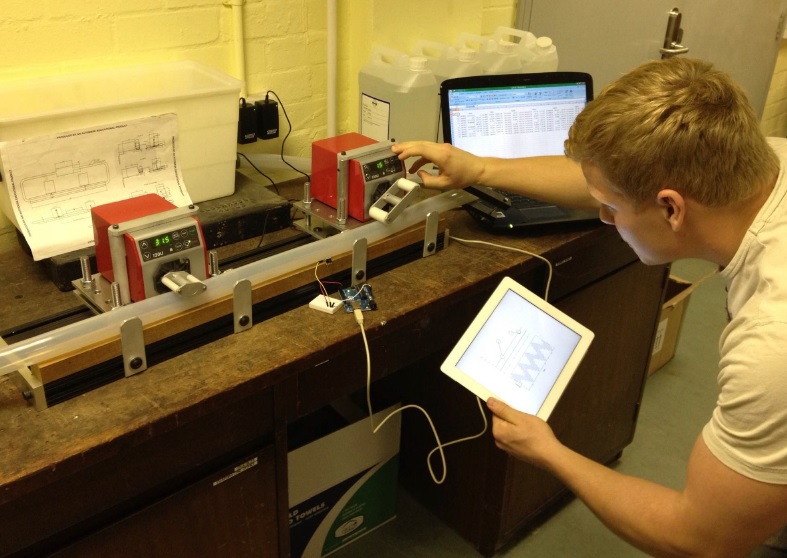Researchers: Raoul van Loon (Swansea University), Parisa Eslambolchilar (Swansea University), Lijie Li (Swansea University), Grace Carolan-Rees (Cedar, Cardiff and Vale University Local Health Board)
 Engineers, computer scientists and health professionals from Welsh Crucible collaborated on a project working towards real-time monitoring of the gastro-intestinal system, using state-of-the-art knowledge of computer modelling and computer science. This could lead to better diagnosis and treatment of gastro-intestinal conditions.
Engineers, computer scientists and health professionals from Welsh Crucible collaborated on a project working towards real-time monitoring of the gastro-intestinal system, using state-of-the-art knowledge of computer modelling and computer science. This could lead to better diagnosis and treatment of gastro-intestinal conditions.
While smart pills are available that can monitor pH, temperature and pressure in the small and large intestine, actual pressure signals and their relation to flow in the small intestine are poorly understood. Research in this project focused on pressure and flow, as well as developing computational models and looking into providing real-time feedback to users’ mobile and computer platforms.
A new experimental setup was built, mimicking the contractions of the small intestine. A number of tests were performed. Simultaneously, a computational model was formulated and implemented. The experimental model and the computational model will work together to increase understanding of pressure and flow and therefore increasing understanding of gastro-intestinal function and malfunction.
Some preliminary research has begun on an Android app to link the computational modelling work with a mobile interface.
